New Jersey is a hub of culture, history, natural beauty, and finance, plus it is located close to New York City. The high demand for its real estate offerings speaks to its attractiveness. That’s why New Jersey is an excellent place to practice as a real estate agent. And to have a successful real estate career in the state, you need to get a good education. This is where real estate schools in NJ come into play.
In this article, you’ll discover the 10 best real estate schools in New Jersey. You will also learn about their pros and cons and tips on how to choose the best real estate schools in NJ.
What Is a Real Estate School?
A real estate school is a specialized institution providing the necessary training to aspiring agents. Students learn about property laws, market analysis, real estate principles, and ethical standards. This is usually in preparation for licensing examinations and to help you thrive in the real estate industry.
The Importance of Attending a Real Estate School in New Jersey
The following are some of the ways attending a real estate school in NJ can help you build a successful career as a real estate agent:
- Provides a Comprehensive Education
The first step is to complete structured and comprehensive New Jersey real estate courses. This ensures you have a strong understanding of the field and are well-equipped to handle the challenges you may face as a real estate agent.
- Provides In-Depth Understanding of the New Jersey Housing Market
Attending real estate classes in New Jersey gives you an understanding of the state’s real estate market. You’ll learn about trends, market analysis, property valuation, and effective strategies. This knowledge is invaluable when helping clients make informed decisions.
- Prepares You for Licensing Exams
The New Jersey real estate license courses are designed to help you pass the state’s licensing test. This is a mandatory step toward becoming a licensed real estate agent.
- Skills Development
Real estate courses in NJ feature case studies, role plays, and practical assignments. These activities can help you get a taste of real-world real estate transactions. You also get to develop crucial skills such as negotiation and communication. These courses can help you transition from the classroom into a professional setting seamlessly.
- Offers Networking Opportunities
When you join a real estate school in NJ, you become part of a community of aspiring real estate professionals. This network can be a great resource for support, future collaborations, and referrals.
- Continuing Education
The real estate market is dynamic. Laws change, and so do market trends. Many real estate schools in NJ offer continuing education courses to keep you updated. They also provide ongoing support in the form of job placement assistance.
The Best Schools Providing Real Estate Classes in New Jersey
New Jersey is home to some of the nation’s top real estate schools. These schools boast comprehensive coursework, excellent programs, and experienced instructors. They are the ideal launchpad for a career in real estate.
Their mode of delivery is flexible, with options for both online and in-person classes. In-person classes often include interactive sessions. Online classes offer study modules in a digital format. The latter are the most convenient options. They allow for self-paced learning and the flexibility to study from anywhere.
The following schools provide the best real estate classes in New Jersey:
Rutgers Business School
Rutgers Business School is located in New Brunswick. It offers an exceptional online real estate concentration program. This course will teach you about buying, selling, and managing properties. You’ll learn the ins and outs of real estate, from legal issues and market trends to property valuation and real estate ethics.
Pros
- It has a thorough curriculum.
- The courses are accredited.
- Their online classes offer great flexibility, allowing you to study at your own pace.
- It has positive ratings and reviews.
- It provides guidance and help through mentorship, scholarships, internships, and career opportunities.
Cons
- Tuition and fees are on the higher end compared to other schools in the state.
- The program is geared towards undergraduate students, so it may not be suitable for those looking for advanced real estate education.
Monmouth University
Monmouth University is a private university in West Long Branch, New Jersey. The institution offers an immersive real estate program featuring topics such as real estate principles, laws, and management.
Pros
- It includes both basic and advanced courses, fitting the needs of newbies and seasoned pros.
- The school is accredited, giving weight to its courses.
- Instructors bring years of practical experience.
- The program has garnered positive reviews from former students.
- It offers flexibility with its online classes.
Cons
- One drawback is the tuition fee, which is quite steep compared to other institutions.
- The program primarily targets undergraduate students.
Kean University
Kean University is third on the list of largest public universities in New Jersey. It is based in Union and Hillside. The institution offers an enriching real estate program designed to prepare students for the dynamic world of real estate. The courses cover topics like real estate basics, property law, and market analysis.
Pros
- The courses are recognized and accredited.
- The program has received positive ratings from its students, attesting to its quality.
- The faculty is made up of seasoned real estate professionals.
- The program offers a wide variety of advanced courses.
- Its online classes provide flexibility, allowing you to learn at your own pace.
Cons
- The tuition and fees at Kean University can be a bit steep for some.
- The program primarily focuses on undergraduate studies, limiting options for those seeking more advanced training.
Seton Hall University
Seton Hall University is in South Orange, New Jersey. It boasts a comprehensive real estate program, preparing students for a successful career in this industry. Topics covered include real estate fundamentals and investment strategies.
Pros
- The school is accredited, lending credibility to your resume.
- Proven professionals make up the teaching staff.
- Both online and on-campus classes are available, catering to different needs.
- The program has been widely praised by its students.
Cons
- Tuition and fees at Seton Hall University are on the higher side.
- The program primarily serves undergraduate students, which may limit those seeking advanced study.
- The range of advanced courses is not as broad as in some other institutions.
Ramapo College of New Jersey
Ramapo College of New Jersey is in Mahwah, New Jersey. It provides a solid foundation in real estate with various courses, including property management, real estate law, and real estate investment.
Pros
- Ramapo College is an accredited institution.
- The faculty comprises knowledgeable professionals in the field.
- The program has received favorable reviews from students.
- It has moderate tuition costs.
Cons
- The program is primarily undergraduate, which might limit those seeking further study.
- The selection of advanced courses is limited.
William Paterson University
William Paterson University has its campus in Wayne, New Jersey. This institution offers a robust real estate program covering pre-licensing education, exam preparation, broker pre-licensing, and continuing education. Topics include introduction to real estate, real estate finance, property management, and real estate law.
Pros
- The courses are regionally accredited.
- The instructors bring a wealth of industry knowledge and experience to the classroom.
- Reviews are majorly positive.
- The tuition is relatively affordable.
Cons
- Primarily targets undergraduate students.
- The variety of advanced courses could be broader.
Montclair State University
Montclair State University is in Montclair, New Jersey. It offers a comprehensive real estate program covering real estate law, property management, and investment.
Pros
- Montclair State University is a regionally accredited institution.
- The program’s faculty comprises seasoned professionals, bringing valuable industry insights to the students.
- The university has generally received positive feedback from its students.
- The tuition fee is reasonable, considering the quality of education provided.
Cons
- The program primarily targets undergraduate students, limiting those aiming for more advanced study.
- The selection of high-level classes could be improved.
Rowan University
Rowan University is in Glassboro, New Jersey. The university provides a comprehensive real estate program, delving into real estate principles, property management, financing, and commercial real estate.
Pros
- Rowan University has regional accreditation.
- Its faculty comprises skilled professionals who enrich the learning experience with their industry expertise.
- Tuition fees are competitive.
- Alumni highly recommend the program.
Cons
- The program primarily aims at undergraduate students, leaving room for expansion in advanced studies.
- While the course selection is diverse, it could offer a wider variety of high-level classes.
Stockton University
Stockton University is located in Galloway, New Jersey. It offers a comprehensive real estate program covering basic real estate principles and advanced real estate education, such as laws, investments, property management, and financing.
Pros
- Stockton University is accredited.
- Its faculty is composed of experienced professionals.
- The curriculum is broad and versatile.
- The tuition fees are highly competitive
- The program receives consistent positive reviews from students.
Cons
- The program is primarily designed for undergraduate students, which limits opportunities for more advanced study.
- The course selection is somewhat narrow and could benefit from expanding into more specialized areas.
Fairleigh Dickinson University
Fairleigh Dickinson University is located in Teaneck, New Jersey. It offers an extensive program in real estate, covering introductory to advanced-level topics such as financing and commercial real estate.
Pros
- Fairleigh Dickinson University is fully accredited.
- The faculty includes professionals with a wealth of experience.
- The course offerings are extensive and diverse.
- Tuition fees are competitive.
- Students give the program strong, positive reviews.
Cons
- It primarily targets undergraduate students, with less emphasis on higher-level study.
- While the course selection is vast, it could benefit from more specialized subject areas.
Image Source
Factors to Consider When Choosing a Real Estate School in NJ
When choosing a real estate school in NJ, there are a few factors to consider. Here are important considerations to guide your selection process:
- Accreditation
Make sure the school is accredited by the New Jersey Real Estate Commission. Accreditation ensures that the institution meets or surpasses an established set of educational standards. This is essential as it guarantees that real estate agencies will recognize your certification.
- Course Offerings
The real estate industry is diverse. Ensure the school offers a wide range of courses covering all aspects of real estate. Look for courses like property management, property law, market analysis, and real estate principles. You will also want a school that stays up-to-date with the latest trends and shifts in the real estate industry.
- Location
If you thrive in a traditional classroom setting, opt for a school in your local area. This allows for direct interactions with instructors and fellow students. A local school will also provide the convenience of attending classes without worrying about travel times.
If travel times are a concern or you thrive in a virtual learning environment, online courses may be the best option.
- Instructor Qualifications
Opt for schools where the faculty members have hands-on experience in the real estate industry. Instructors should have the necessary credentials. They should also have a successful track record in real estate. Qualified and experienced instructors can provide valuable insights that go beyond textbook knowledge. Their real-world experience can prepare you for a successful career in this field.
- Cost
Consider the overall cost of your education and if it matches your budget. Weigh the tuition and fees against the offerings. Some schools may have higher tuition but offer more comprehensive courses. Others may have lower fees but limited course options. It’s essential to find a balance that fits your financial situation.
- Student Support Resources
Real estate can be complex. It helps to have a school that offers support resources like tutoring, career guidance, exam preparation, and post-license training. These resources are vital in preparing you for the licensing exam and guiding your career path. They can also help keep your skills sharp after graduation through post-license training.
- Passing Rate
The passing rate of a real estate school is a key indicator of the quality of its education. A high rate signals effective teaching methods and well-prepared students. Therefore, consider schools with high pass rates on the state real estate licensing exam.
FAQ
How much does real estate school cost in NJ?
The cost of a real estate course in NJ varies depending on the institution. On average, you can expect to pay from $300 to $500 for a salesperson and over $900 for a comprehensive pre-license broker’s real estate course in NJ. New Jersey license fees are $160 and $270 for a salesperson and a broker’s license, respectively.
How long does it take to become a real estate agent in NJ?
The journey to becoming a real estate agent in New Jersey takes between one to six months. It varies depending on your pace in completing the 75-hour New Jersey real estate course.
The Bottom Line
Selecting a good real estate school is a vital step in your journey to becoming a licensed real estate agent. The right school will provide you with the knowledge, skills, and resources needed to pass the licensing exam and succeed in your career.
Take the time to research and compare different schools before making a decision. Consider factors like cost, student support resources, and passing rate to ensure you receive a quality education.












